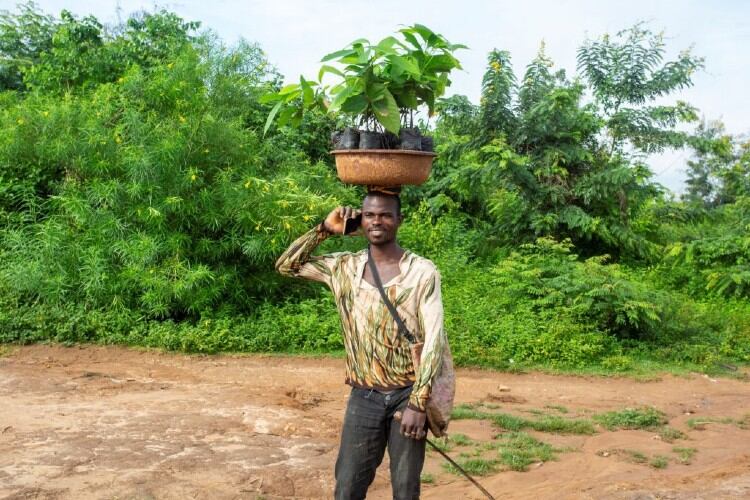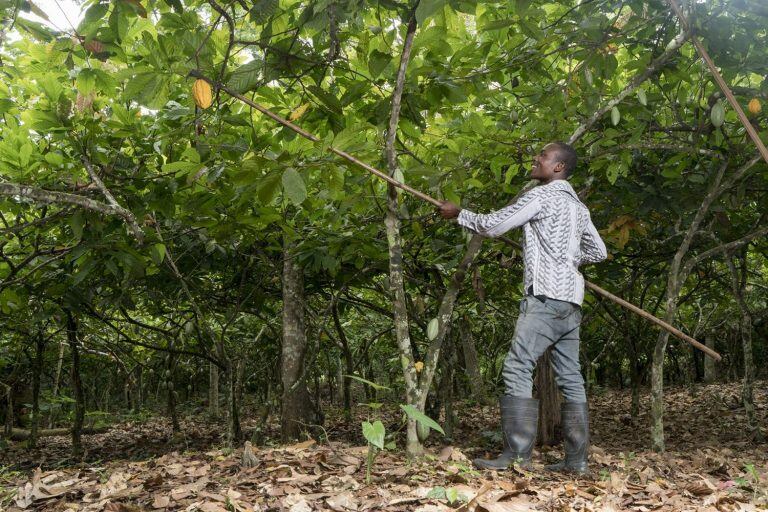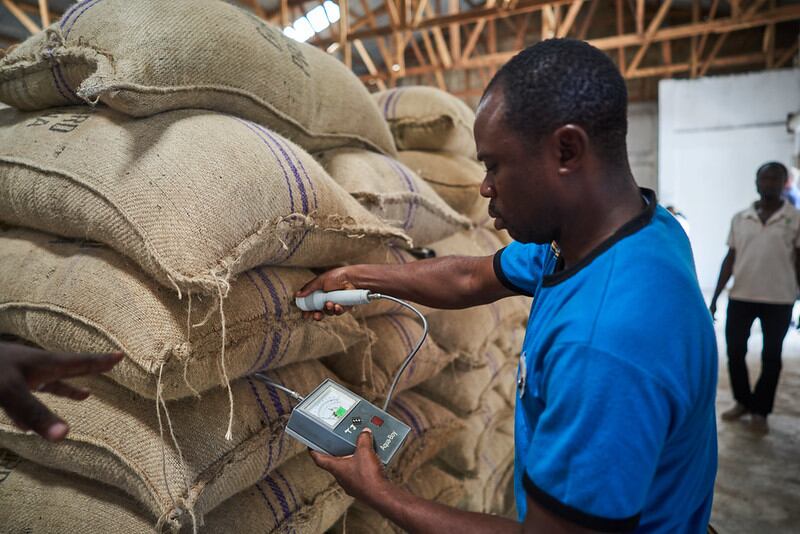Ghana is among the world’s leaders in the use of mobile money, but surprisingly, its cocoa sector, which accounts for roughly 2% of the country's GDP and at least 19% of total export earnings, still pays upwards of 7 billion cedis ($1.2bn) every year in cash and checks to purchasing clerks, who then transfer it to farmers in cash.
The Ghana Cocoa Board (COCOBOD) has encouraged licensed buying companies (LBCs) to start paying their farmers digitally. Several LBCs have begun doing so, and as a result, have seen interest on savings and fewer robberies
Digital financial services represent a powerful opportunity to deliver on our vision of a sustainable and thriving cocoa sector -- Rick Scobey, president, WCF
In 2018, the World Cocoa Foundation (WCF) and the Better Than Cash Alliance launched a partnership aimed at supporting its member companies to transition from cash to digital payments.
A report, Digitizing Payments in Ghana’s Cocoa Supply Chain, launched this month and published by the WCF and the Better Than Cash Alliance, says that by adopting digital payments direct from LBCs to farmers, firms can shorten their operational cycles, reduce their interest cost and achieve a higher return on their capital. The safety of staff and purchasing clerks (PCs) will be greatly improved, and farmers will be able to access relevant financial services and credit needed to invest in their farms.
In a foreword, Rick Scobey, president, WCF, said: “Digital financial services represent a powerful opportunity to deliver on our vision of a sustainable and thriving cocoa sector, where farmers prosper, communities are empowered, and the planet is healthy. Embracing digital payments can benefit all players in the supply chain, most importantly farmers: they report experiencing improved security; better access to savings, insurance and financial products; higher incomes; and better cash management.”
Higher costs
The report compliments a recent study, The Hidden Costs of Cash to Ghana’s Cocoa Sector, published by the Better Than Cash Alliance and the WCF, which sets out the many pitfalls of cash payments, including significant risk to personal safety, much higher costs and lower productivity and transparency, among many others.
It also sets out the key opportunities and advantages in shifting to digital payments throughout the supply chain.
The Costs of Cash study, as it is known, confirms that cash remains the primary payment method used to purchase cocoa in Ghana. Over 90% of farmer-level transactions in Ghana take place in cash, representing more than$1.26bn of payments annually.
Recognizing how digital payments can make a fundamental difference to farmers, WCF, along with its company members (LBCs, traders, exporters, manufacturers) and the Better Than Cash Alliance, studied various payment digitization projects in Ghana between 2018 and 2020 and revealed that 91% of Ghanaian adults own a mobile phone and there were 32.5 million mobile money accounts in Ghana as of the end of 2019.
Of these, the study claims 14.5 million were active consumers of mobile money services across four providers.
Since 2018, the WCF says six of the largest LBCs in Ghana are experimenting with digital payment methods to purchasing clerks or directly to farmers and its engagement has helped some of its members to start their first digitization initiatives.
“These efforts have led to around 700 digital transactions with a value of $1.2m, with close to 2,000 farmers receiving some form of digital financial literacy training,” according to the WCF.
Cash forces
The Costs of Cash study found the cocoa sector’s use of cash forces these actors to lose or put at risk approximately $21.5m, equivalent to 19% of LBC revenues per year. In addition to the human costs from violence related to cash robbery, there are four main quantifiable costs and risks of using cash.
They are:
- Cocoa makes up 19% of all Ghana’s exports and 2% of its gross domestic product (GDP).
- Ghana produces 25% of the world’s cocoa bean exports, second only to Côte d’Ivoire.
- In 2018, the export value of Ghana’s raw cocoa beans was $2.4bn.
- The sector employs 800,000 farmers, 20% of whom are women.
In addition, bank interest charges borne by LBCs during the cocoa purchasing cycle are high and the process can last up to 60 days. Cocoa farmers struggle to access credit and grow their yields. Only one in eight cocoa farmers has purchased inputs with a formal loan. For banks and digital lenders, the reason is simple: it is too hard to reach cocoa farmers and too difficult to assess their ability to pay. One out of every four famers lives on less than 18 cedis a day.
The Cost of Cash study concludes by saying LBCs in the Ghanaian cocoa sector operate in a highly challenging environment, characterized by very thin margins and intense competition.
Any unnecessary costs, downside risks, or inefficiencies create additional pressures on businesses and individuals, and can make the difference between viability and failure.
“Right now, cash-based payments are making that struggle harder, as cash puts people at risk from robbery and causes significant delays in operations. However, in that firms have an opportunity to turn their payments into an asset that can strengthen and grow their businesses. Digitizing cocoa payments can serve as a foundation to build a lower-risk, more sustainable, more profitable LBC – the kind of partner-centric organization that can attract the best PCs and farmers.”
COVID-19
As the COVID-19 pandemic has shown, now more than ever, responsible digital payments are vital to deliver funds quickly to those most in need and help the country be better prepared for future crises.
The sector is in the initial stages of its digitization journey, but the road ahead presents huge potential … a clear lesson from the Alliance/ WCF-supported digitization initiatives is that most challenges occur when there has been a failure to adequately consult and include key stakeholders through both the design and implementation phases, the authors of the report state.
- Additional source: The Cost of Cash to Ghana’s Cocoa Sector




